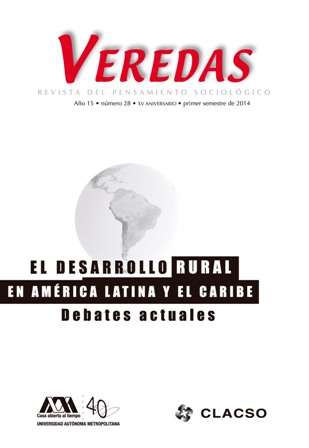La descolonización del territorio. Territorialidad campesina y Estado multiterritorial abirrado
Keywords:
descolonización, Estado-nación, campesinado, multiterrito-rialidad.Abstract
The Bolivian social rebellion of the early twenty-first century is occurring laden with a political scope disruptive to hegemonic capitalist colonial modernity in many ways, articulated around the project of decolonization of the peoples, nations and campesinos, who assume the form of subject constituents in this Bolivian historical panorama. The colonial origins of Bolivia determine its emergent situation with its original indigenous conquered, subjugated and marginalized in the constitution of the modern Bolivian state, they questioning the principles on which the modern nation-state stands, as being based on the exclusion and social inequality constructed from ethnic differences that were supposed to have been overcome by the cultural mixing and political homogenization of modern citizenship. The axes of a disjointed state mesh their political institutions, their societal composition and its territorial structure, so that the political project of decolonization of the state involves advancing the political expression of societal reality in the multidimensionality of the state, and the strategy embodied in the new Constitution is the implementation of a communitarian plurinational State with territorial autonomy replacing the previous model of the nation-state.





